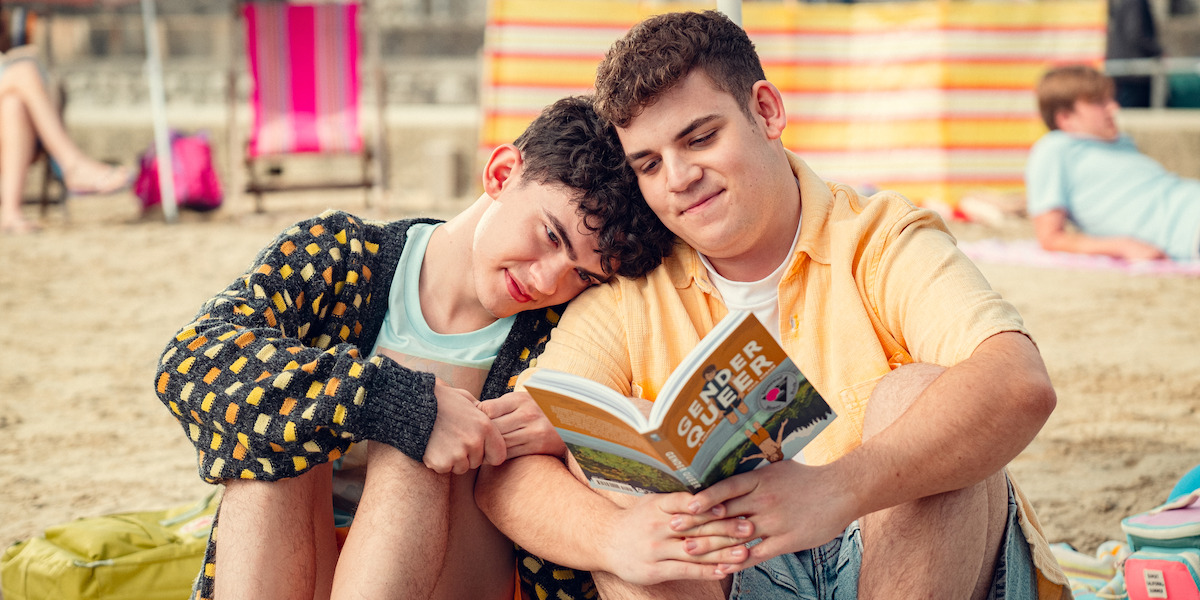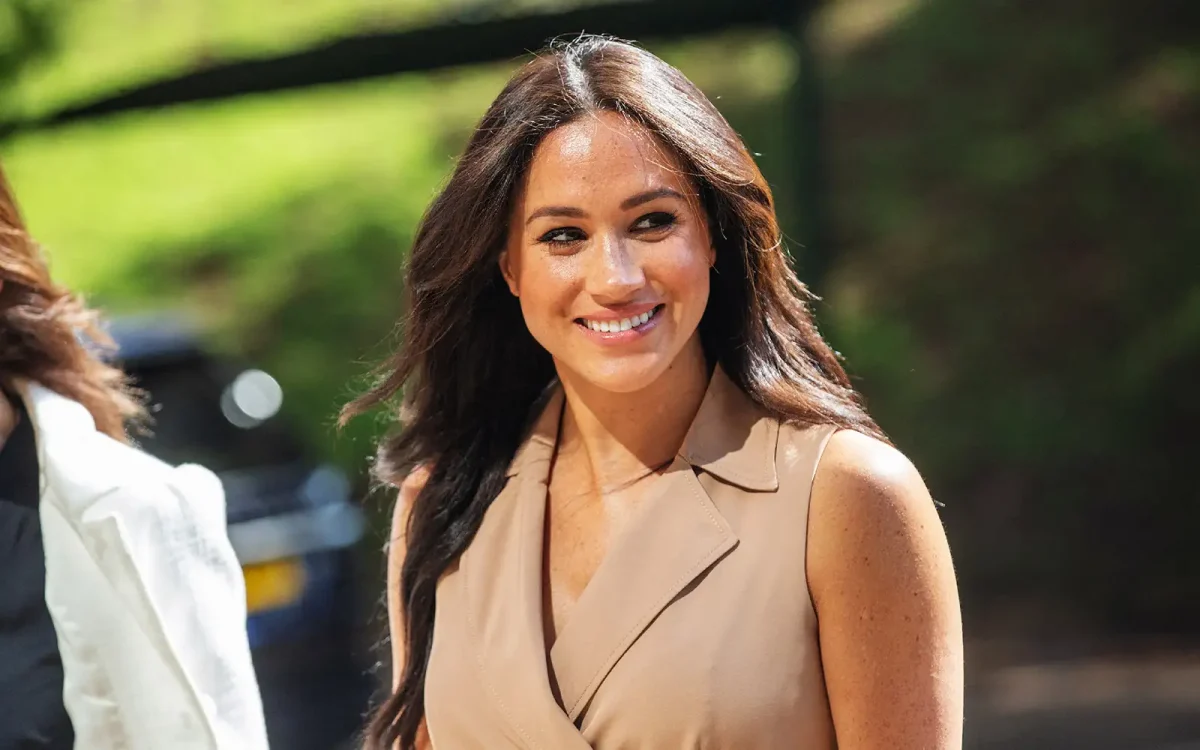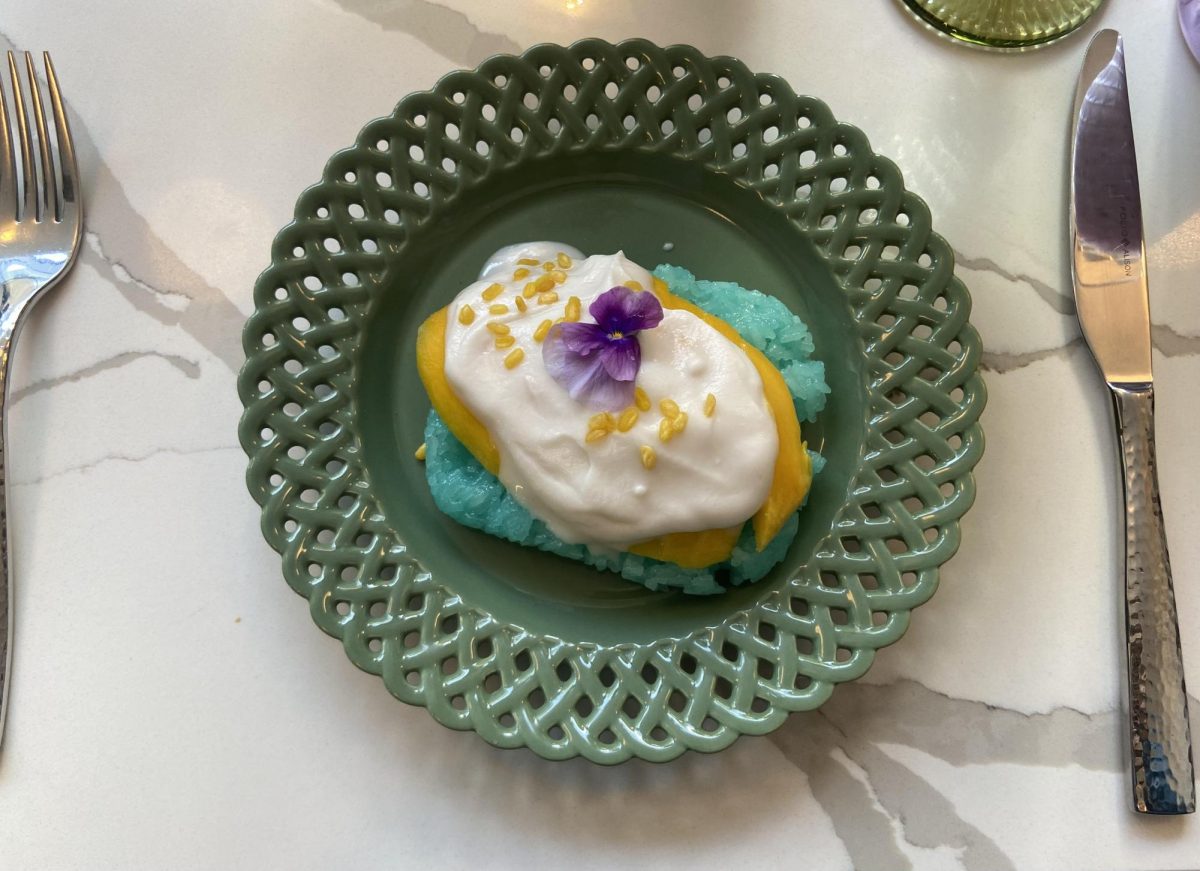After the announcement of the third season of Heartstopper, airing Oct. 3, the queer community and straight and cisgender allies were on the edge of their seats for the month of October. Both the producers and directors of Heartstopper were thrilled to announce a focus on a more queer-targeted approach for the audience. The past two seasons were criticized by many as being produced and directed through the lens of the heterosexual perspective, and made seemingly with a focus on conventionally attractive stars, packaged neatly for the straight community to enjoy. The latest season left the queer community understood and feeling less like a mere identity choice. The solemn mood felt after watching season three evoked such strong emotions, making many viewers feel the need to call family and friends to say “I love you”.
Heartstopper is a British coming-of-age comedy, romance and drama television series streaming on Netflix, written and created by Alice Oseman, based on her webcomic and graphic novel about a gay teen grappling with his identity. Charlie is one of the main characters, struggling with school and having a crush on a presumably straight boy, Nick. Charlie pushes through and overcomes his anxieties to come out from the other side more confident.
The return of Heartstopper for the third season had many of the same aspects that seasons one and two had. But, in my opinion, the third season is by far better directed, even if the plotline in some areas is choppy.
While the overall storyline was less well-written compared to the first and second season,the well-executed dialogue and directing gave quality coming-of-age production. The progression of the plot through the first three episodes was reasonably paced, but the fourth, titled Journey, seemed like a cockroach sitting next to three ladybugs. Though the fourth episode was depressing, fast-paced and the biggest plot mess in the entire series, it was authentic in showcasing the experience of what it is like to struggle with poor mental health. After the fourth episode, the plot and storyline returned to its steady and well-written nature.
The fifth and sixth episodes, Winter and Body, touched on the importance of healthy relationships with family and friends, the experience of being transfeminine and having gender dysphoria and making compromises. The last two episodes ended on a relatively positive note, emphasizing not to spend all of one’s time and support on one specific person. One thing that struck me and other fans, is that Heartstopper scriptwriter and directing team did a impressive job that capture an accurate account of teens planning for their future and the experience of what it is like when young adults approach adulthood.
Charlie goes through ups and downs over the course of the season, but with the help of professionals and a therapist he is able to cope and maintain a positive mental health. Charlie accepts that he cannot do everything on his own and leans on his friends and family for support. Joe Locke performed a raw and emotional approach to embody Charlie’s pain and struggles with his eating disorder and poor mental health. Nick is still adjusting to his peers knowing about his sexuality, but is more concerned that all the attention is causing Charlie’s mental health to decrease, causing a dip in his appetite.
Over the course of the season, there were a few moments when Nick and Charlie were apart for a while. Nick’s separation from Charlie made him feel pressured to be the one to help Charlie with his issues. Kit Connor’s usual fun-loving and goofy approach towards Nick’s personality is contrasted from his portrayal of Nick this season, bringing a more serious manner to the show. An earnest and authentic performance of Nick’s experience in the newest season explores the difficulties of him being in a relationship with Charlie and how Nick struggles to find out who he is without Charlie’s presence. Kit Connor’s performance showcases the complexity of both Nick as a character and Kit Connor as an actor.
After the first and second seasons of Heartstopper, the newest season’s execution of the production is exquisite. The versatile and unique camera angles, cute animated clipart, set design, beautiful filming locations and top-notch indie and pop songs anthems for the soundtrack. The special effects and music help captivate emotional and lighthearted moments, bringing out the mood of the scenes and episodes as well as the season’s storytelling.
In this new season, a variety of important themes and messages are explored. The show strives to emphasize the importance of the beliefs that it does not matter if you can’t define who you are, prioritizing mental wellness is key to having healthy relationships and trying new things and going outside your comfort zone is how you explore your true identity. As Charlie’s therapist, Geoff, often said to him, “trauma does not define you.”
Some viewers left feeling a little heartbroken and tingling with cringe, as many finished the season wanting to understand and explore Elle’s experience as a transgender girl, as well Darcy’s exploration of her gender identity and expression and Imogen’s struggles with relationships and experience of not knowing who she is. Overall, the character’s identity explorations was quality-wise better than season one and two, but by, quantity, lacked. Despite the lowlights of this season, the overall production and acting was amazing.
In summary, the latest season of Heartstopper is a heart-bending watching experience that guided me through the relationship journeys of Nick and Charlie, Elle and Tao and Tara and Darcy. Vibrant and relatable characters with diverse and interesting perspectives were displayed, leaving me feeling in touch with those characters. The series itself is rewatch material, so the checkbox on every Heartstopper fan’s to-do list is to rewatch the third season over and over again until it gets tiring and dry. Though the newest season was anything but dry, therefore I give it a 4.7 out of 5. My only critiques being that Nick and his brother, David, were never properly given a storyline to mesh out their differences, as I wanted to see David have redeeming character development. I also wished that there was more focus on Darcy’s personal life, as her story felt slightly neglected this season. I recommend that more people give the show a try, even if you do not identify as LGBTQ+ or just like a theme in the series, you do not have to define who you are, because season three, so far, is the pot of gold at the end of the rainbow. Overall, the cringey, but oh-so-cute, moments made me and millions of others happy this Oct.









